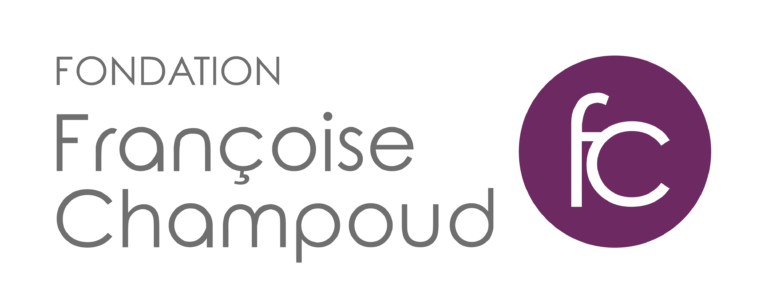is one of his best-loved operas and amuses the audience. The delightful quartet of characters is straight out of commedia dell’arte: the elderly baron Don Pasquale marries the mischievous Norina, who has her eye on Ernesto, her amorous lover, providing a perfect opportunity for a beautiful serenade. The clever Doctor Malatesta plays the role of Harlequin, his plan proves effective, and the lamb turns into a dragon. And what a slap in the face both for the elderly husband and for the minds of audiences at the time!
This madcap comedy is not devoid of emotion, and we end up being touched by a Don Pasquale who is fooled and overwhelmed by the modern world, but who is, all in all, very human. Caricature slips into social satire. After two centuries of opera buffa, this work represents the peak of this art form in 1843, nonetheless infused with a modern touch that complexified its structure, with Donizetti making his characters his contemporaries so that his audience could identify with them.
Director Tim Sheader also holds up a mirror to us today, with his highly entertaining vision inspired by a current TV series. The title role succumbs to the siren song of an attempt to preserve youthfulness, as the big boss of the company bearing his name and living an irresistibly kitsch home. It’s been over 20 years since Don Pasquale was last performed at the Opéra de Lausanne, which for the first time welcomes conductor Giuseppe Grazioli who is a specialist of this repertoire.
First performance January 3rd, 1843, at the Théâtre-Italien, Paris
Luck’s Music Library Editions

Joel Prieto studied at the Manhattan School of Music, the Atelier Lyrique de l’Opéra de Paris, then in a project for young singers at the Salzburg Festival. He gained international recognition as an ensemble member of the Deutsche Oper Berlin and through his involvement in the zarzuela Luisa Fernanda alongside Plácido Domingo, at the Theater an der Wien. He has performed with conductors Fabio Luisi, Roberto Abbado, Zubin Mehta, Adam Fischer, and worked with directors David McVicar, Robert Carsen and Claus Guth. He was awarded first prize at the Operalia competition and has performed in concert and recital at the Salzburg Festival, the Maestranza in Sevilla and at Wigmore Hall. He has sung alongside Anna Netrebko and Erwin Schrott.
More recently, he played the title-role in Béatrice et Bénédict by Berlioz at the Capitole in Toulouse and Belmonte in Die Entführung aus dem Serail for his debut at the Los Angeles Opera.
Mezzo-soprano Julia Deit-Ferrand trained at the Haute école de musique de Lausanne, where she obtained a soloist’s master’s degree from Jeanne-Michèle Charbonnet and a master’s degree in interpretation from Hiroko Kawamichi. At the Grand Théâtre de Genève, she performed the title role in a French adaptation of La Cenerentola, the Mezzo in Der goldene Drache by Péter Eötvös, and Bianca in the young audience creation Rosa Bianca to music by Donizetti. She played Cherubino (Le nozze di Figaro) under the direction of Leonardo García Alarcón and, at the Nouvel Opéra Fribourg, Berta (Il barbiere di Siviglia), Le Nain Chouquette and Un Animal (Snow White by Marius-Felix Lange), as well as Chérubin (Sholololo!). In the musical comedy repertoire, she plays Sally Bowles in Cabaret, Fantine in Les Misérables and Hattie in Kiss Me, Kate. She puts contemporary creation and performative art forms at the heart of her research, and practices sassy, a style born of urban dance with Lausanne choreographer Daya Jones. She created Laissez durer la nuit, a project based on traditional Turkish and Greek songs and baroque pieces. She performs at L’Arsenic in Lausanne in Louis Bonard’s performance L’Apocalypse, with music by Nicholas Stücklin. She won the young audience prize and the prize for best contemporary interpretation at the Kattenburg competition, and is a laureate of the Fritz Bach Foundation. She won 3rd prize at the Concours international Léopold Bellan in Paris and was a finalist in the Voix Nouvelles competition in Switzerland in 2018. She holds a master’s degree in sociology from the Université Sorbonne Nouvelle (Paris III). This season, she has just made her debut at Opéra du Rhin in Simon Steen-Andersen’s Don Giovanni’s Inferno (world premiere), as part of the Musica festival, and at Opéra d’Avignon in Die Zauberflöte (Papagena). Future projects include the title role in Handel’s Lotario, Cherubino and a world premiere role.
At Opéra de Lausanne: Le Domino noir (2023)
The Opéra de Lausanne Choir is young, made up of students of singing from Lausanne’s University of Music and the Geneva HEM, and professional singers. Its members are selected by audition and periodically reheard. For each opera, they are distributed depending on their voice and/or aptitudes. Thanks mainly to their talent on stage, supported by an infectious enthusiasm, they are highly appreciated by all the theatre directors invited. For a few years the choir has benefitted from preparation by several experienced choir masters from different backgrounds, chosen depending on the works being sung and their specific interest.